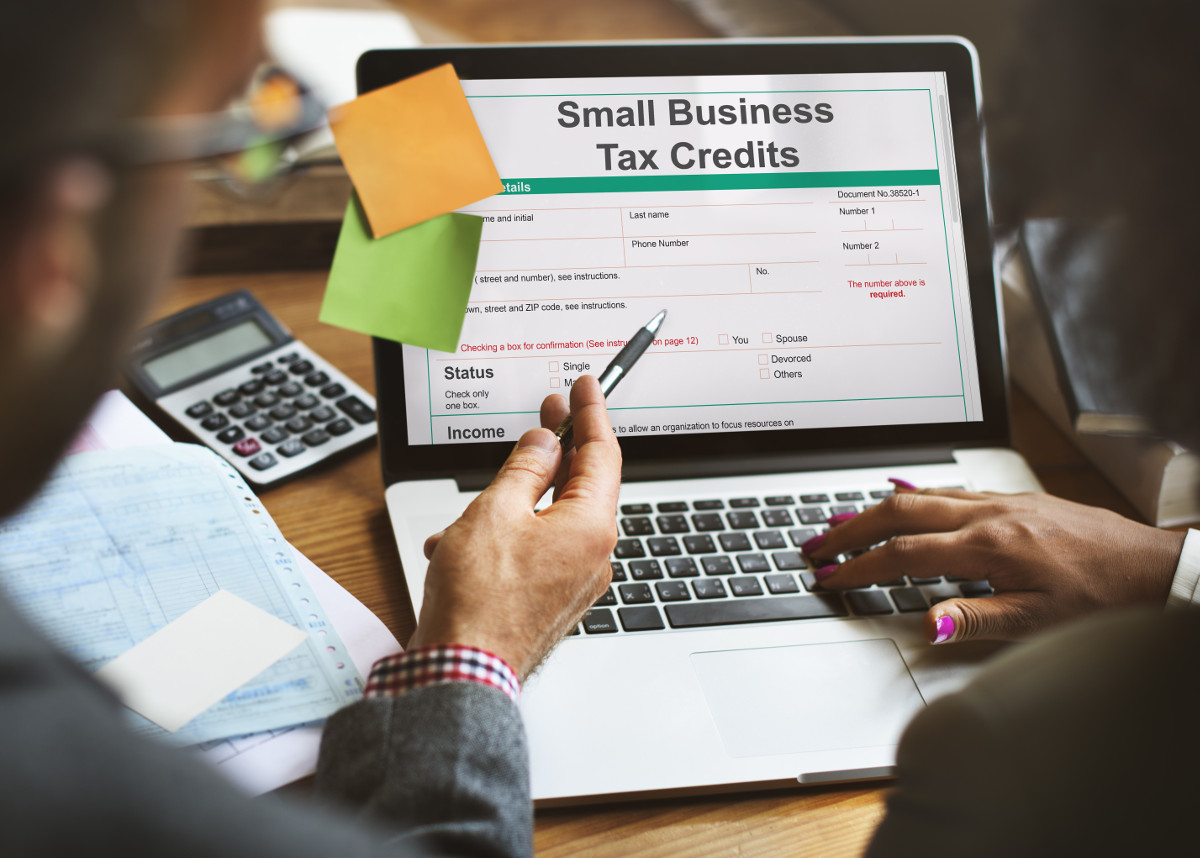How to Pay Your Business Taxes If You Have No Funds
The type of business you operate may affect what taxes you must pay. Find out the best way to pay your business taxes when you don't have enough money.

Being your own boss comes with a lot of freedom. After all, there's no one there to tell you what to do except you. However, that much freedom comes with a lot of responsibility. The taxes you took for granted when you were gainfully employed are now something you need to take care of on your own. This is probably why a lot of self-employed individuals get surprised by the fact that they suddenly have a huge business tax bill they need to pay. This is a very common occurrence, by the way. If you're the unfortunate individual currently facing this predicament, faint not. Nobody said going out on your own was going to be easy. And there are several things that you can do to make sure that this bill gets paid.
Step 1: Check again
Ok, the IRS people aren't perfect. They can make mistakes and so can you. You need to make sure that the figure on your tax bill is accurate, and that you were able to include all the deductions and credits that you are allowed to. If you're going to review your tax bill, you might want to consider a tax professional who knows what he's doing. Once you've verified what amount is actually due, you now need to see if you can reduce or remove any penalties.The good news is that the IRS has a First Time Penalty Abatement policy wherein you are granted relief from penalties (read that: no penalties to pay) from failing to file, pay on time, and deposit taxes when due. To check if you're eligible, just call the toll-free number on your notice.
#2: Negotiate with the IRS
Could it be that simple? Well, not really but the IRS does provide you with a lot of options if you are unable to pay your tax bill on time. You can opt for an installment agreement, the terms of which will depend on how much you owe. Take note that there is a setup fee as well as interest and accrued penalties until you pay your balance in full. But it does give you some breathing time.
Aside from installment plans, you can also check if you're eligible for an offer of compromise which is essentially paying less than the full amount that you owe. This is an option for those who can prove that paying the full tax debt will create a financial hardship. The last option that you can go with is to request a temporary delay in collection. The IRS will determine if you are eligible for this option. If they determine that you really can't pay your debt, they will defer payment until your financial situation improves. However, this delay does not remove the penalties and interests that you will incur until the entire debt is paid in full.

#3: Alternative Sources of Money
If none of the aforementioned options provided by the IRS are open to you (either by choice or circumstance), you'll definitely need to find a way to scrounge up the money for payment. The good news is that there are several ways that you can get funds to finance your taxes, such as personal loans online, credit cards, bank loans, and family-or-friend loans. Let's discuss the pros and cons of each one so that you can choose which works best for you.
Personal loans: this is a type of unsecured loan which means you aren't going to need to put your assets at risk. The rates are sometimes lower compared to your credit card or a line of credit and, even better, they're usually fixed. You can get a personal loan from a bank, credit union, or even online. Just keep in mind that the rate you get will be determined by your credit score and an application will require a hard inquiry which translates to your credit score taking a slight hit.
Credit Cards: this is an ideal option if you want to rack up the points or if you have a really good credit score and can get a zero-percent rate for a year. Otherwise, you'd be better off with a personal loan or the IRS installment plan. Also, the IRS charges a fee if you pay through your credit card.
Friends-and-family loan: getting a loan from your friends and family can seem ideal. After all, the rates are typically lower (if there are even any) and the payment period is usually longer. But failure to pay will put a strain on your relationships.

401(k) Loan: you can borrow up to $50,000 or 50 percent of the assets of your retirement plan on a tax-free basis. Yes, it seems like a risky move, but there are a lot of benefits to getting this loan. The interest you pay is actually not to any creditor but is repaid back into your own 401(k) account. Basically, you're paying interest to your retirement plan – still your pocket, not someone else's. And the cost of doing this is typically much lower than the cost of paying the interest rate charged by banks and other lenders. However, this presupposes that you stuck with your old plan when you quit your job or are still gainfully employed while doing business on the side. If, however, you rolled over to an IRA account (which is what you typically do when you retire or change work), then you may consider getting money from your IRA instead.
IRA: unlike with your 401(k), you can't really borrow money directly from your IRA. But you can take money out before your retirement. However, this is only ideal if you're over 59-and-a-half years old or if you're willing to take the 10 percent penalty.
#4: Make Estimated Payments
Ok, so now that you've paid your tax bill, there's one more thing left to do – make sure this never happens again. One thing you can do, of course, is to get a professional to do your taxes this time, so you don't get unexpectedly hit by a tax bill again. The more important thing you should do is to make estimated payments. Calculate what you think your business tax bill is going to be and pay estimated taxes quarterly. The only way to really prevent this from happening again is to be preemptive. Be prepared. Don't let the IRS come knocking on your door.


